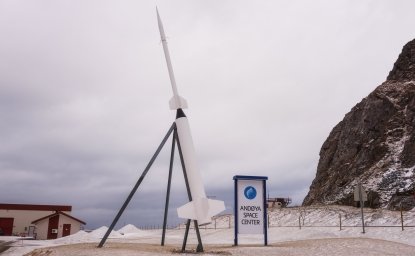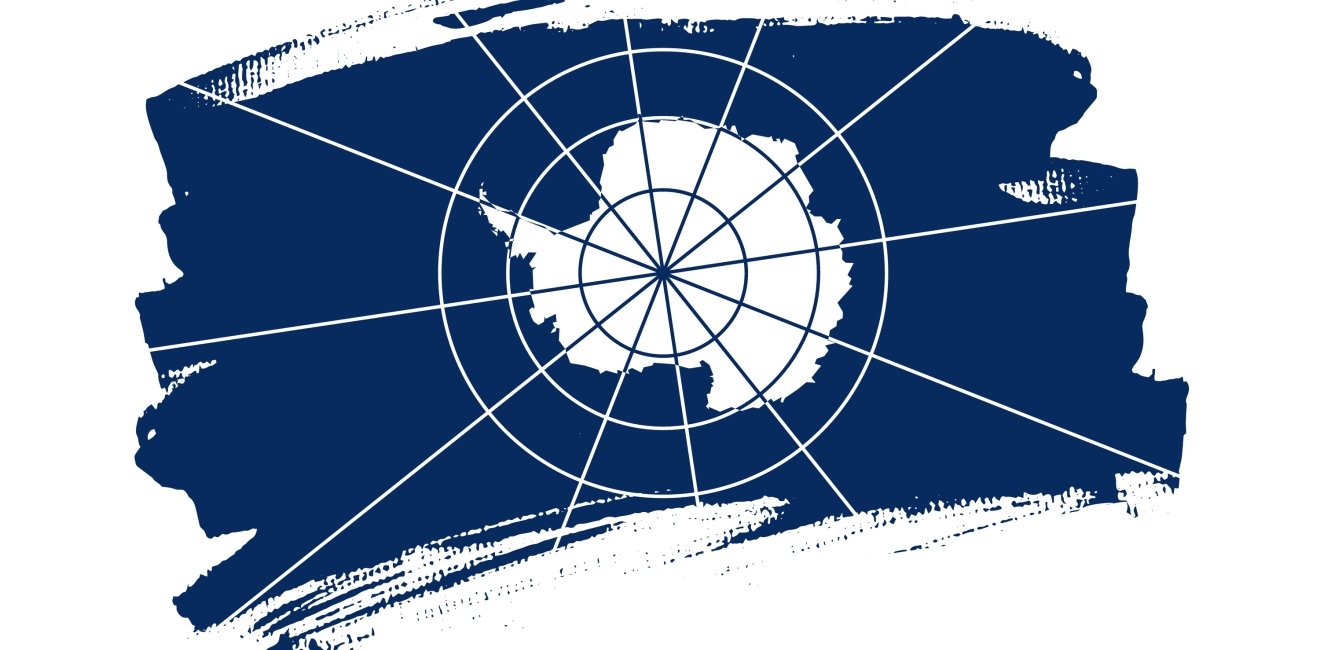
A blog of the Polar Institute
Strolling along the Seine at sunset. People-watching from a café on the Champs-Élysées. Perhaps a side visit to the Louvre or Versailles. These are activities that Antarctic diplomats were looking forward to as part of attending this year’s Antarctic Treaty Consultative Meeting (ATCM). Instead, they will assemble virtually June 14-24 under French Government auspices for the first gathering of the treaty parties in two years.
There is much going on in Antarctic diplomacy at the moment, and the parties will have a busy agenda.[1] They will touch on a broad range of issues related to governance of Antarctica, at both the ATCM itself and the Committee for Environmental Protection which will also meet in connection with the ATCM. As the former head of the U.S. delegation to the ATCMs, considering the particularly prominent and urgent matters of concern to the governments and other stakeholders, here is what I will be looking for as outcomes from this year’s meeting:
COVID Response
Scientific research is the major activity in Antarctica, and national Antarctic science programs had to adapt quickly to the pandemic by severely restricting operations and access to research stations over the past year. Researchers and staff had to implement quarantines and testing regimes in gateway states to ensure COVID-19 did not reach the continent. This was essential as medical capabilities in Antarctica are limited and an outbreak of such an infectious disease would create a crisis situation (as was the case for at least one research station). Science programs have lost valuable time and will still have to follow protocols that will affect operations in the coming months and perhaps years. The Consultative Parties will want to exchange views on how they managed their research operations to date during the COVID-19 era, develop lessons learned for their mutual benefit, and commit to continuing efforts to protect all the programs for the coming austral summer.
Addressing Climate Change
All of the countries active in Antarctica (especially after the change of government in the United States) are now focused on preparing for the Glasgow Climate Change Conference of the Parties in November. Climate change has been an agenda item at the ATCM for many years, but its importance is increasing as scientists make new discoveries in Antarctica with implications for the future of the rest of the planet. New research on the Antarctic Ice Sheet indicates that rapid sea-level rise from Antarctica will result if nations exceed Paris Agreement targets (2°C warming in the twenty-first century). A recent article notes that if current emissions rates continue and put the world on course towards 3°C warming, this tipping point will be reached by 2060, and no human intervention, including geoengineering, would be able to stop 17 to 21 centimeters (roughly 6.7 to 8.3 inches) of sea-level rise from Antarctic ice melt alone by 2100. Climate change also has significant implications for the operation of Antarctic research stations, both in term of the conditions where they are located and how they prioritize their science work.
The Wilson Center published a report by an interdisciplinary, expert group of leading Antarctic scientists exploring climate change and Southern Ocean resilience that could be instructive for both the ATCM and CCAMLR.
All this means that the ATCM and other parts of the Antarctic Treaty System ― notably, the Commission for the Conservation of Antarctic Marine Living Resources (CCAMLR) ― need to take climate change into account in all their relevant work. The Wilson Center published a report by an interdisciplinary, expert group of leading Antarctic scientists exploring climate change and Southern Ocean resilience that could be instructive for both the ATCM and CCAMLR. The parties should acknowledge the importance of the climate change issue, pledge to assist in the processes that support implementation of the Paris Agreement (including the work of the Intergovernmental Panel on Climate Change), and continue to strengthen their commitment to carrying out climate-related science in Antarctica.
Rising Impacts from Tourism
The pandemic caused a severe reduction in ship-borne tourism in Antarctica, and slow recoveries in Argentina and Chile could have implications for tour companies hoping to resume operations in the coming austral summer season. However, the eventual return to normal is predicted to put Antarctica back on course towards increases over the coming years. While the Antarctic continent is huge, tour operators tend to concentrate on already well-identified scenic spots on the periphery, especially in Antarctic Peninsula region, and these operations need to be managed carefully so that the impacts from tours involving landings do not have negative environmental effects. Moreover, countries may be tempted to construct permanent infrastructure (such as short-term lodging) to support tourism, sometimes at or near research stations, that will attract even more tourists to otherwise pristine areas. Some operators may promote such infrastructure to facilitate the increasingly popular option of flying to Antarctica (instead of crossing the Drake Passage by sea) and then boarding a cruise ship. There are also continuing challenges posed by weak regulation of yachts and smaller vessels. All of this creates challenges not just related to environmental impacts but also for safety, as research stations have limited capacity to provide medical and search and rescue services.
The treaty parties will no doubt wish to give careful consideration to future trends in Antarctic tourism to ensure that international regulation and domestic enforcement of treaty-based rules are adequate.
Liability
At the ATCM in Stockholm in 2005, the treaty parties agreed to an Annex to the Environmental Protocol to the Antarctic Treaty on Liability Arising from Environmental Emergencies, subject to approval (including ratification) by each of the states that were Consultative Parties as of that date. A legal instrument covering liability for damage arising from activities taking place in the Antarctic Treaty area and covered by the Protocol was called for in the 1991 Madrid Protocol, and Annex VI is a partial response to that mandate. Moreover, legal liability is one of the well-recognized ways to incentivize increased standards of care to protect the environment by imposing costs on those who cause damage.
Approval and entry into force of the Annex is one of the ATCM’s most important pieces of unfinished business. Over the past sixteen years, many countries have taken the time-consuming steps needed to enact complicated domestic legislation to accept and implement the regime. But many countries (including the United States, China, France, Japan and South Korea) have not yet acted, and until they do so, the Annex lies dormant.
The parties agreed to take stock of the situation at the ATCM. Unfortunately, the manner of discussion of this issue over the years has taken the form of a perfunctory and brief round robin of comments by each Consultative Party on the status of its internal process. The parties will want to go further and find effective means to move this matter forward.
Paris Declaration
The French hosts of the ATCM have proposed that the parties issue a declaration marking the 60th anniversary of the entry into force of the Antarctic Treaty and the 30th anniversary of the signing of the Environmental Protocol. These sorts of declarations have been issued at a number of ATCMs in the past, including when the United States hosted the meeting in Baltimore in 2009, and in each case they provided an opportunity for the parties to renew their support for key tenets of the Antarctic Treaty System. It will be particularly valuable if the declaration this year can focus on the importance of climate science, for reasons stated above. In addition, this is an opportunity for the parties to underscore their continuing support for the legal prohibition on mineral resource activities (often referred to as the “mining ban”) in the Environmental Protocol; failure to include that element would raise questions about that vital part of Antarctic law and policy.
Marine Protected Areas
And finally, a word about an issue that is of great concern in Antarctic policy but is not on the ATCM agenda: in recent years, there has been tremendous interest worldwide in promoting marine conservation in the Southern Ocean through the establishment of large-scale marine protected areas (MPAs). Such MPAs are under the jurisdiction of CCAMLR, the ATCM’s sister organization. In past ATCMs, even though MPAs were not on the agenda there, delegates spent considerable time on the margins talking about these initiatives. During an ATCM held virtually, there will likely be little opportunity to advance the marine conservation agenda at this ATCM. And yet, most parties consider this to be one of the highest priority issues in Antarctic diplomacy and will look for opportunities to exchange views, to help promote progress at the next CAMLR Commission meeting (perhaps also to be held virtually) in October.
* * *
We should all wish the diplomats to the ATCM well in their work, if not together in Paris then at least from their capitals. With the meeting hosted by France, one of the leading states involved in Antarctica, it is sure to be a productive gathering.
[1] The chair of the ATCM XLII and heads of some of the key delegations spoke about their priorities for the meeting at a Wilson Center panel on May 27. Watching those discussions will give a sense of what will transpire at this important international meeting.
Author

Former Acting Deputy Assistant Secretary for Oceans and Fisheries and Director for Ocean and Polar Affairs, US Department of State

Polar Institute
Since its inception in 2017, the Polar Institute has become a premier forum for discussion and policy analysis of Arctic and Antarctic issues, and is known in Washington, DC and elsewhere as the Arctic Public Square. The Institute holistically studies the central policy issues facing these regions—with an emphasis on Arctic governance, climate change, economic development, scientific research, security, and Indigenous communities—and communicates trusted analysis to policymakers and other stakeholders. Read more

Explore More in Polar Points
Browse Polar Points
Greenland’s New Governing Coalition Signals Consensus

Fulbright Arctic Initiative IV Scholar at the Polar Institute


